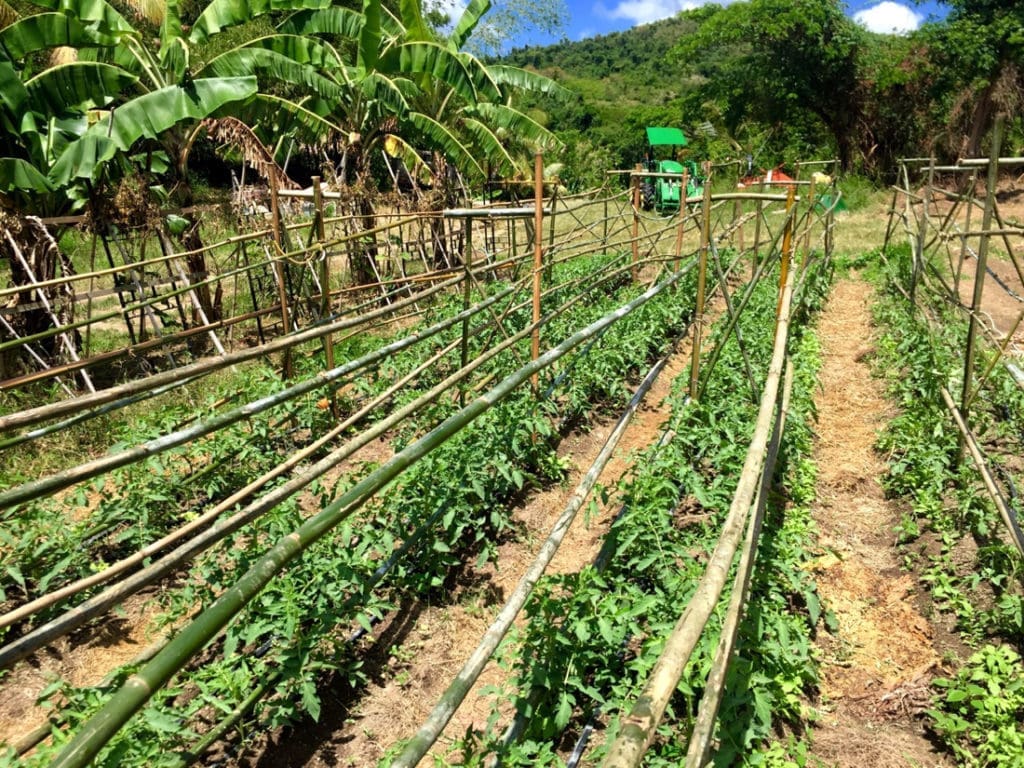
The testimony at the Senate Committee on Economic Development and Agriculture Wednesday indicated that the challenges facing farmers for decades are still there.
“We sincerely hope that today’s hearing does not follow the same pattern as previous hearings — where testimony is respectfully heard, but no substantive action is taken,” Yvette Brown, a co-owner of Sejah Farms, testified.
“This is not about starting over – it’s about unblocking what’s already in motion,” Sommer Sibilly-Brown, the executive director of VI Good Food Coalition, testified.
Elridge Thomas, a We Grow Food, Inc. member, called for action. “We can’t discuss the issue to death.”
Senate President Milton Potter asked testifiers if the V.I. Agricultural Plan, which became law two years ago, had any effect.
V.I. Agriculture Department Commissioner Louis Petersen Jr. said some plan elements were being implemented but that it was still “a plan in progress.”
Sibilly-Brown said the plan was just one component of the program needed to increase agricultural production in the territory. She said residents needed to be educated on why they should purchase locally produced agricultural products and food retailers also needed to be educated about the positive benefits of local produce.
Sen. Franklin Johnson said that locally grown vegetables were his best food.
Thomas said the plan did not include the “infrastructure” needed.
Petersen said the Agriculture Department’s challenges include staff shortages, machinery breakdowns, inclement weather preventing land preparation work, funding shortages, cash flow availability, low staff salaries, and a lack of insurance providers offering liability coverage for farm operations.
Sibilly-Brown concluded her testimony on a note of urgency. “Farmers are aging, climate is changing, programs are under threat, every day we delay, we risk losing another farmer.”
“Federal programs that have kept our food systems afloat — SNAP, WIC, Child Nutrition, Specialty Crop Block Grants — are under threat. These programs do more than put food in fridges. They fund our agencies, staff, and farmers,” she added.
Petersen listed some of his department’s accomplishments. They included the delivery of programs and services in all divisions — to include the WIC Farmers Market Nutrition Program, the Senior Farmers Market Nutrition Program, progress with USDA Natural Resources Conservation Service project in Bordeaux, successful negotiations with employee unions and the Office of Collective Bargaining, the acquisition of ARPA funds, the issuance of a bid request for the cistern construction project in Bordeaux, Agrifest, upgrades to the St. Croix abattoir, and the purchase of new equipment with funding from the Office of the Interior.
One accomplishment he could not list was the opening of the abattoir on St. Thomas. Two years ago, plans were being made for a mobile abattoir on St. Thomas to be purchased with FEMA funds. However, Petersen told senators this week that FEMA determined that insurance funds were all the territory needed to open the St. Thomas abattoir. Petersen said plans were being made to rehabilitate it, but did not indicate that it would be open this year.
Sibilly-Brown testified that, according to the USDA’s 2022 census of agriculture, “676 farms operate in the Virgin Islands. More than 90 percent of these are under 20 acres, and over 60 percent earn less than $5,000 annually. The average age of a producer is nearly 59, and less than 10 percent are under 35 …. Meanwhile, nearly 7,000 acres are designated as farmland across the territory, but less than 1,000 acres are used for crop production.”
“There has been no meaningful executive action to establish the infrastructure, technical assistance, or services required to support the growth and development of a viable agricultural economy,” Yvette Browne said.
Sen. Hubert Frederick chaired the hearing. Sens. Clifford Joseph, Avery Lewis, Marvin Blyden, Angel Bolques, Alma Francis Heyliger, Novelle Francis, Jr., Marise James, Franklin Johnson, and Milton Potter attended.


